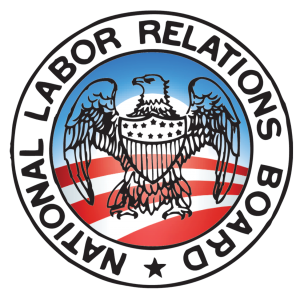
Then, the court was practically disgusted with the agency for utilizing its quasi-judicial powers to act as prosecutor, judge, and jury in labor law cases. That particular case, Yellow Taxi Co. v. NLRB, involved independent taxi cab drivers in Minneapolis that were allegedly engaged in “unfair labor practices”.
The Board had held that the cab drivers operated with leases from a taxi cab company operate cabs are nonetheless employees and not independent contractors for the purpose of the National Labor Relations Act. In other words, that they could be forced into the collective bargaining arrangements that the unionized drivers operated by.
The court had none of that, and slapped the agency down. But it would hardly be the last time federal courts would be called upon to strike down sweeping rulings by the Board.
In 1980, the 7th Circuit Court of Appeals had overturned the agency’s decision in NLRB v. Mutual Maintenance Service Co., when the Board had no problem providing reinstatement as a remedy to an employee that had openly admitted to defrauding the government.
In another case in 1983, New Jersey Bell Tel. Co. v. NLRB, the 3rd Circuit Court of Appeals held that an employer was not required to release the attendance records of employees to a union unless the employees consented. The company had relied on its privacy policy in that case, but the Board had nonetheless ordered the company to comply. Said the court, “we do not think the issue here is even close. Supreme Court precedent, and common sense all militate against the Board’s decision in this case.”
In 2002, in Hoffman Plastic Compounds, Inc. v. NLRB, the Supreme Court overturned a decision by the NLRB to award back-pay to an employee who was an illegal immigrant.
More recently, in 2005, the 4th Circuit Court of Appeals held in Lee v. NLRB & Communications Workers of Am. that non-members of the union at an employer that had a contract with a union had a protected right to not wear union logos on the job.
One could go on and on, but it is clear based on court decision after decision that when it comes to interpreting labor law, the NLRB has often been overturned by federal courts. That is one of the reasons Congress should immediately enact legislation by Rep. Austin Scott (R-GA) that would take away the agency’s judicial powers, and make federal courts to only arbiter of alleged infractions of labor law.
Even if decisions by the agency primarily favored employers — they don’t, but even if they did — it would still be best to take these powers away from the political executive branch. Why?
Depending on the composition of the political appointees of the Board — comprised of up to five members all chosen by the President, subject to Senate confirmation — individual decisions can favor unions or employers. But the system is clearly weighted on the side of the unions, since the principal presumption of the agency is on the side of facilitating union organization.
Two of the most recent decisions by the Board — Lamons Gasket Co. and UGL-UNICCO Service Company — overturned decisions that were made when the Bush Administration was responsible for the agency’s composition. Those decisions in turn had overturned Johnson and Clinton Administration NLRB rulings, respectively.
So, why shouldn’t these decisions just be left to courts? An executive branch agency should not have such powers to act so arbitrarily. The recent decision by the Board to pursue a case against Boeing for opening a manufacturing facility in right-to-work South Carolina is but one example of these types of abuses
It is the agency’s power to act as a court is the problem to begin with. And that is where Congress should direct its energies.
Bill Wilson is the President of Americans for Limited Government. You can follow Bill on Twitter at @BillWilsonALG.






